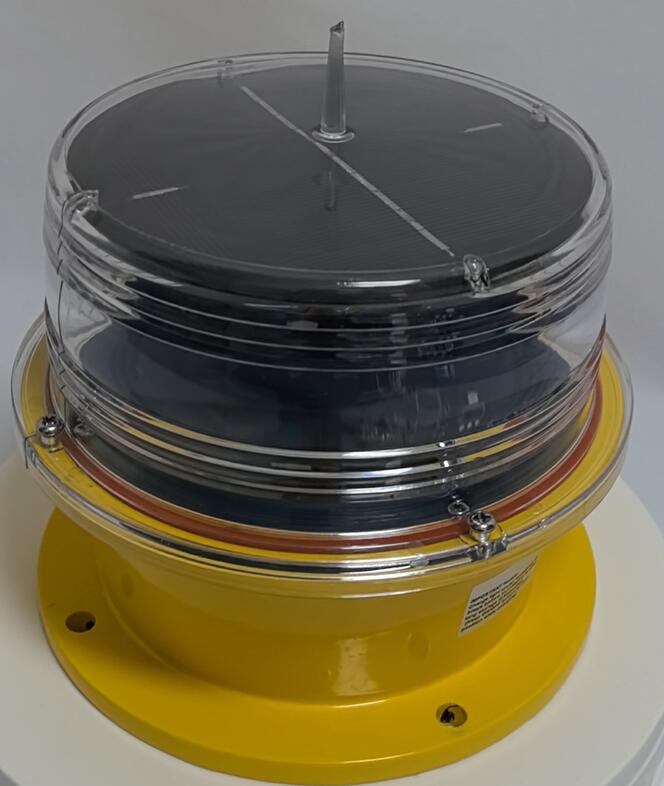In the realm of maritime innovation, solar marine lights have emerged as a revolutionary solution to enhance safety, efficiency, and sustainability. These lights, powered by the sun, are redefining how we illuminate marine environments, offering eco-friendly alternatives to traditional lighting systems. With their versatility and robust performance, solar marine lights are steering the maritime industry toward a brighter, greener future.
Harnessing Solar Power for Marine Applications
Solar marine lights operate by capturing sunlight through photovoltaic panels, storing the energy in rechargeable batteries, and using it to power efficient LED lights. This ingenious design eliminates the need for external power sources, making these lights self-sustaining and cost-effective.
Marine environments, often remote and challenging, benefit immensely from the independent operation of solar marine lights. Whether on buoys, docks, or vessels, these lights function reliably in areas where traditional electrical infrastructure is difficult or impossible to establish.

Sustainability at the Core
One of the most significant advantages of solar marine lights is their minimal environmental impact. By utilizing renewable solar energy, these lights reduce reliance on fossil fuels and contribute to lowering carbon emissions. This aligns perfectly with global efforts to combat climate change and promote sustainable practices.
| Solar marine lights | Solar marine light |
Moreover, solar marine lights incorporate energy-efficient LED technology, which uses significantly less power than traditional incandescent or halogen bulbs. LEDs also have a longer lifespan, reducing waste and further enhancing the environmental benefits of solar marine lights.
Diverse Applications of Solar Marine Lights
Solar marine lights have versatile applications across the maritime sector, addressing various needs with efficiency and reliability:
Navigational Aids
Used on buoys, lighthouses, and channel markers, solar marine lights ensure safe navigation for vessels in all weather conditions. Their bright illumination and flashing patterns enhance visibility, reducing the risk of accidents.
Dock and Harbor Lighting
These lights are essential for illuminating docks, piers, and harbors. They improve operational safety while eliminating the need for grid electricity, making them an economical and sustainable choice.
Vessel Lighting
Solar marine lights are increasingly used on boats and ships for onboard lighting or as emergency backup systems. Their durability and ease of installation make them a practical option for maritime operators.
Aquaculture and Fishing
Solar marine lights are utilized in aquaculture farms to create ideal lighting conditions for aquatic species. They are also popular in the fishing industry, where they attract fish or provide essential lighting for nighttime operations.
Advantages Over Traditional Marine Lighting
The benefits of solar marine lights extend beyond sustainability, offering practical advantages over conventional lighting systems:
Cost Savings: While the upfront cost of solar marine lights may be higher, the absence of fuel costs, reduced maintenance requirements, and long operational lifespans lead to substantial savings over time.
Low Maintenance: With no complex wiring or fuel systems, solar marine lights require minimal upkeep, saving time and labor costs.
Weather Resilience: Designed to withstand harsh marine environments, including saltwater, high winds, and extreme temperatures, these lights offer reliable performance in challenging conditions.
Portability: Solar marine lights are easy to transport and install, making them ideal for temporary or remote installations.
Innovations Driving the Future
As technology evolves, solar marine lights are becoming more advanced and efficient. Features like smart controls, GPS synchronization, and adaptive brightness settings are now being integrated into modern designs. These innovations enhance functionality while optimizing energy usage, ensuring even greater reliability.
Furthermore, developments in solar panel efficiency and battery technology are extending the operational time of solar marine lights, enabling them to perform effectively even in regions with limited sunlight. Such advancements are expanding the potential applications of these lights across diverse maritime settings.
Supporting a Greener Maritime Industry
The adoption of solar marine lights reflects a broader shift within the maritime industry toward sustainability. By reducing energy consumption and lowering emissions, these lights play a pivotal role in helping the industry meet environmental regulations and achieve its sustainability goals.
For companies and organizations involved in maritime operations, transitioning to solar marine lights is not only an environmentally responsible choice but also a practical one. The reduced operational costs and long-term reliability of these lights make them an invaluable asset in an increasingly competitive industry.
Solar marine lights are more than just a technological innovation—they are a testament to the maritime industry’s commitment to sustainability and progress. Their ability to provide reliable, eco-friendly illumination in demanding environments makes them an indispensable tool for modern marine applications.
As the world continues to prioritize renewable energy and sustainable practices, solar marine lights are poised to lead the way, illuminating our seas and harbors while safeguarding the planet. In choosing solar marine lights, the maritime sector is not only investing in efficiency but also in a brighter, more sustainable future for all.